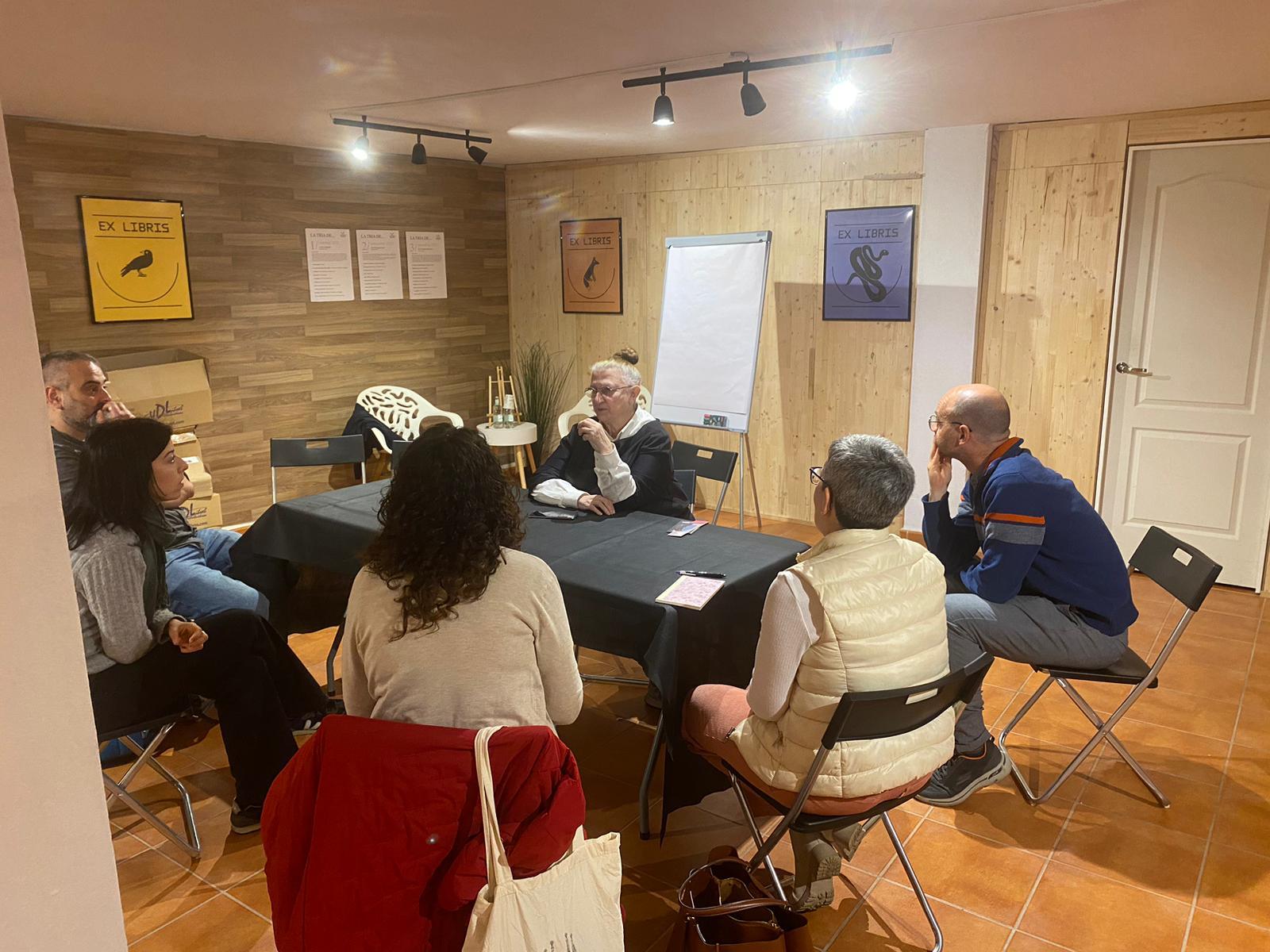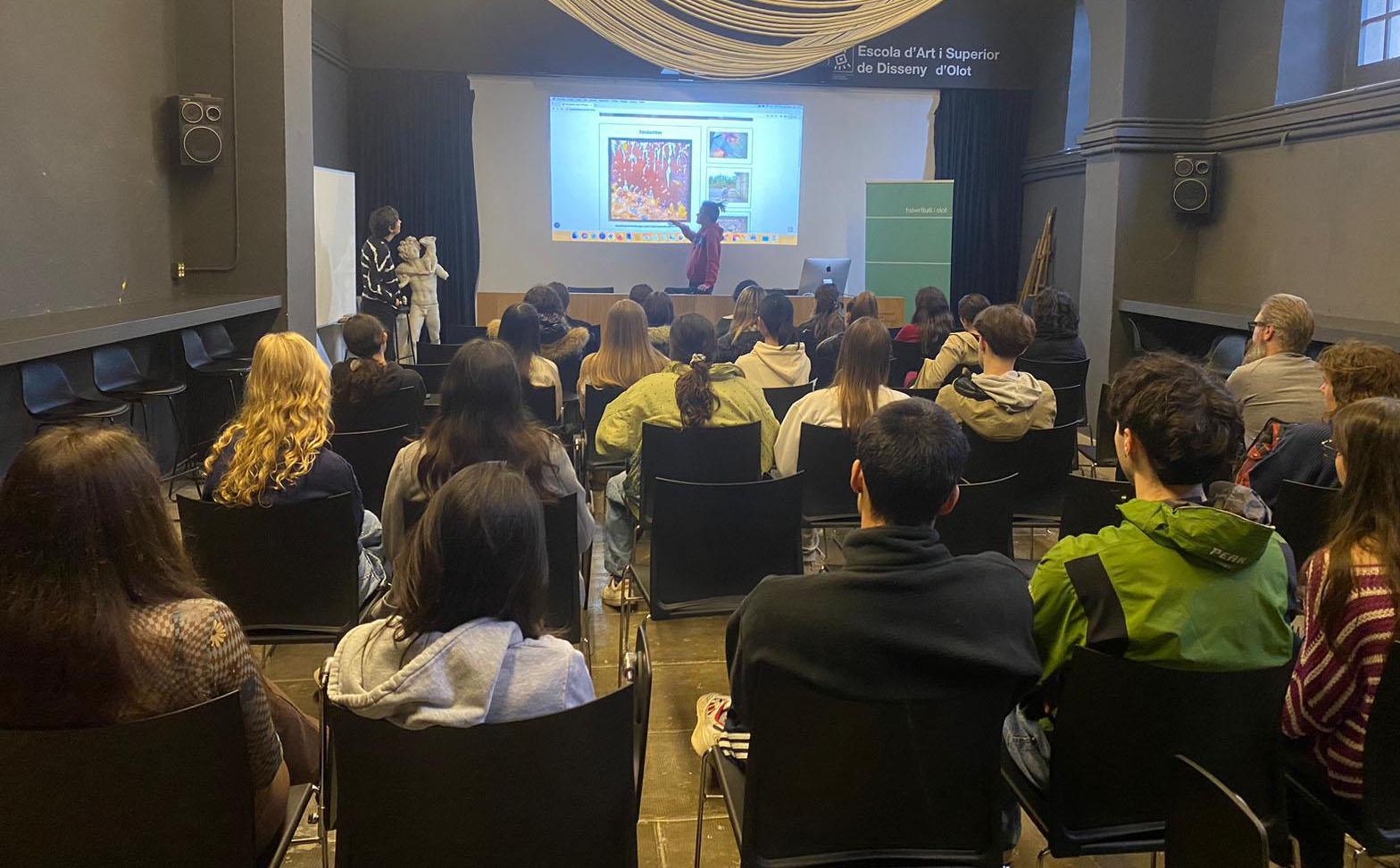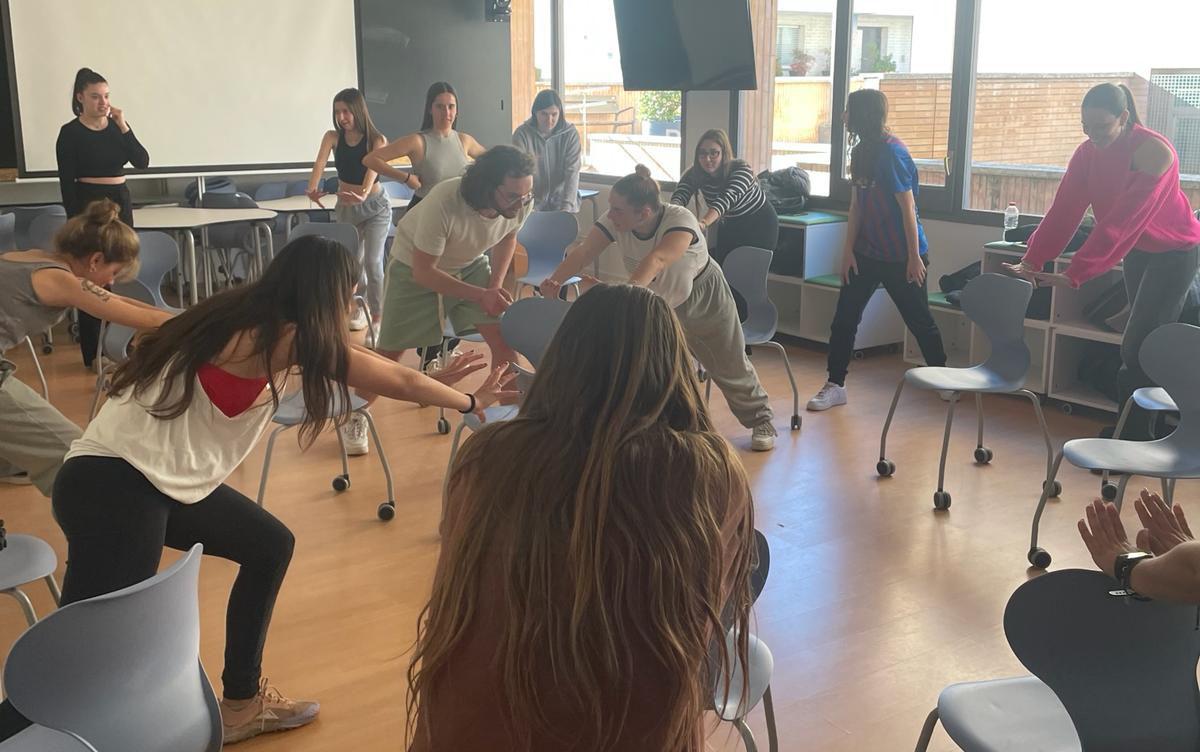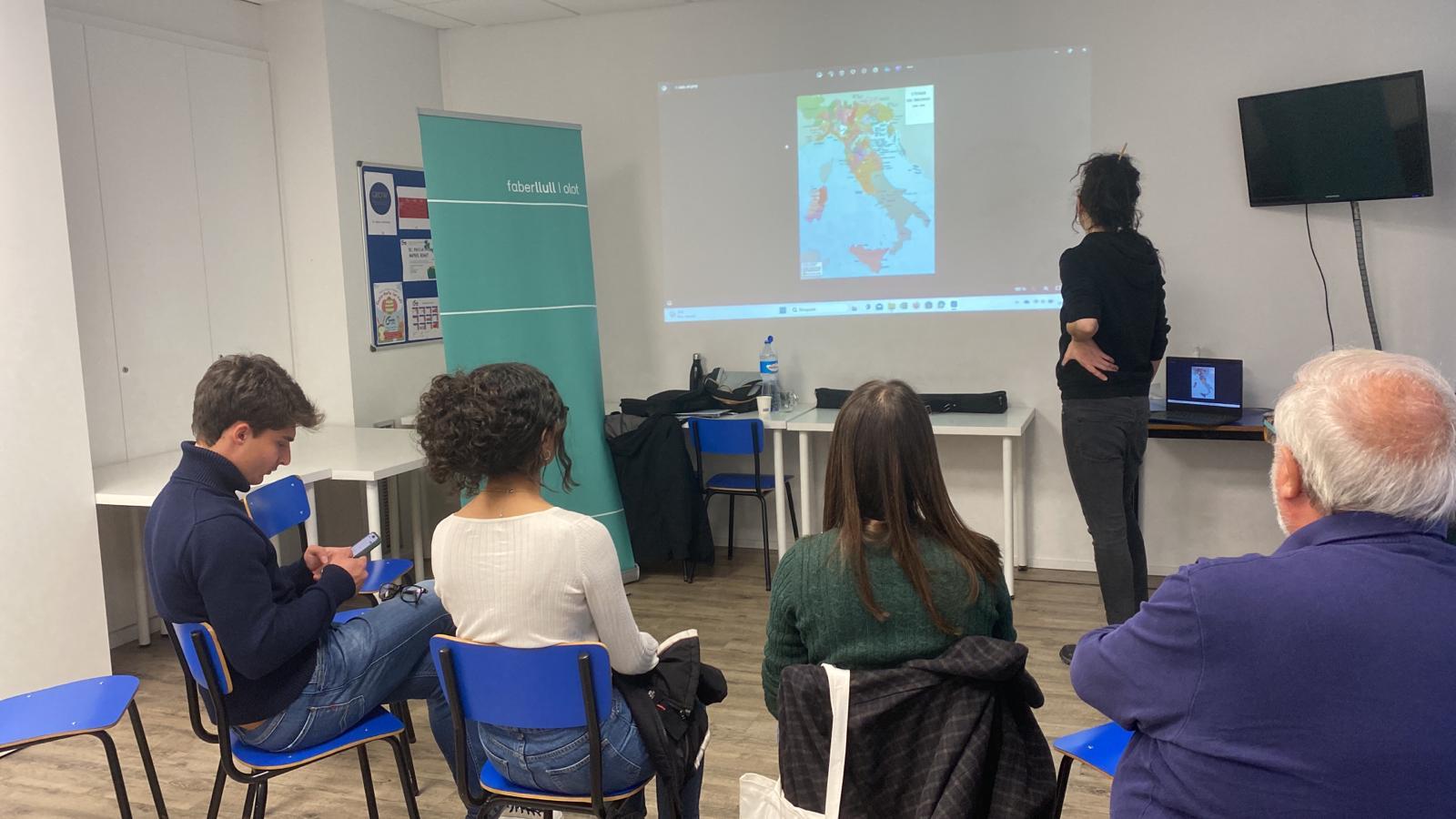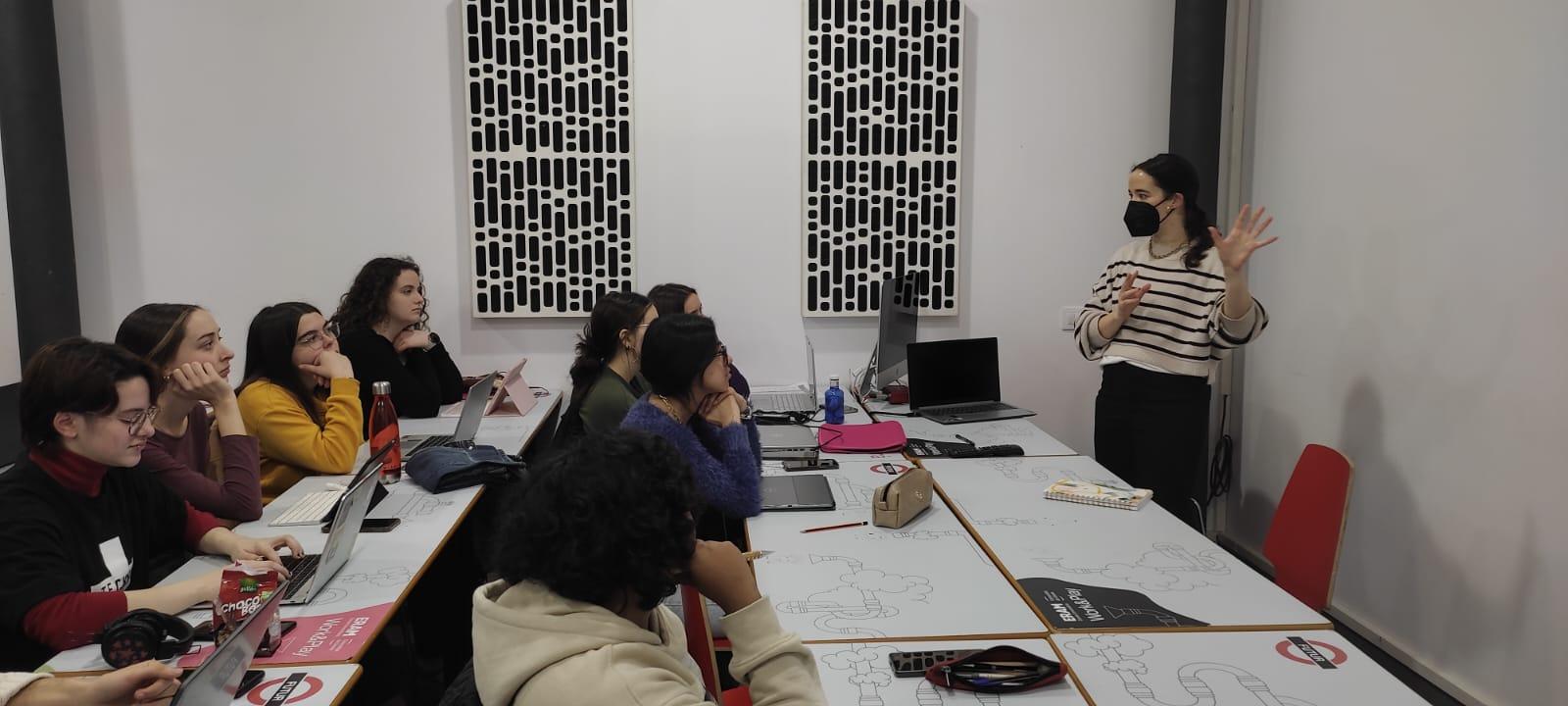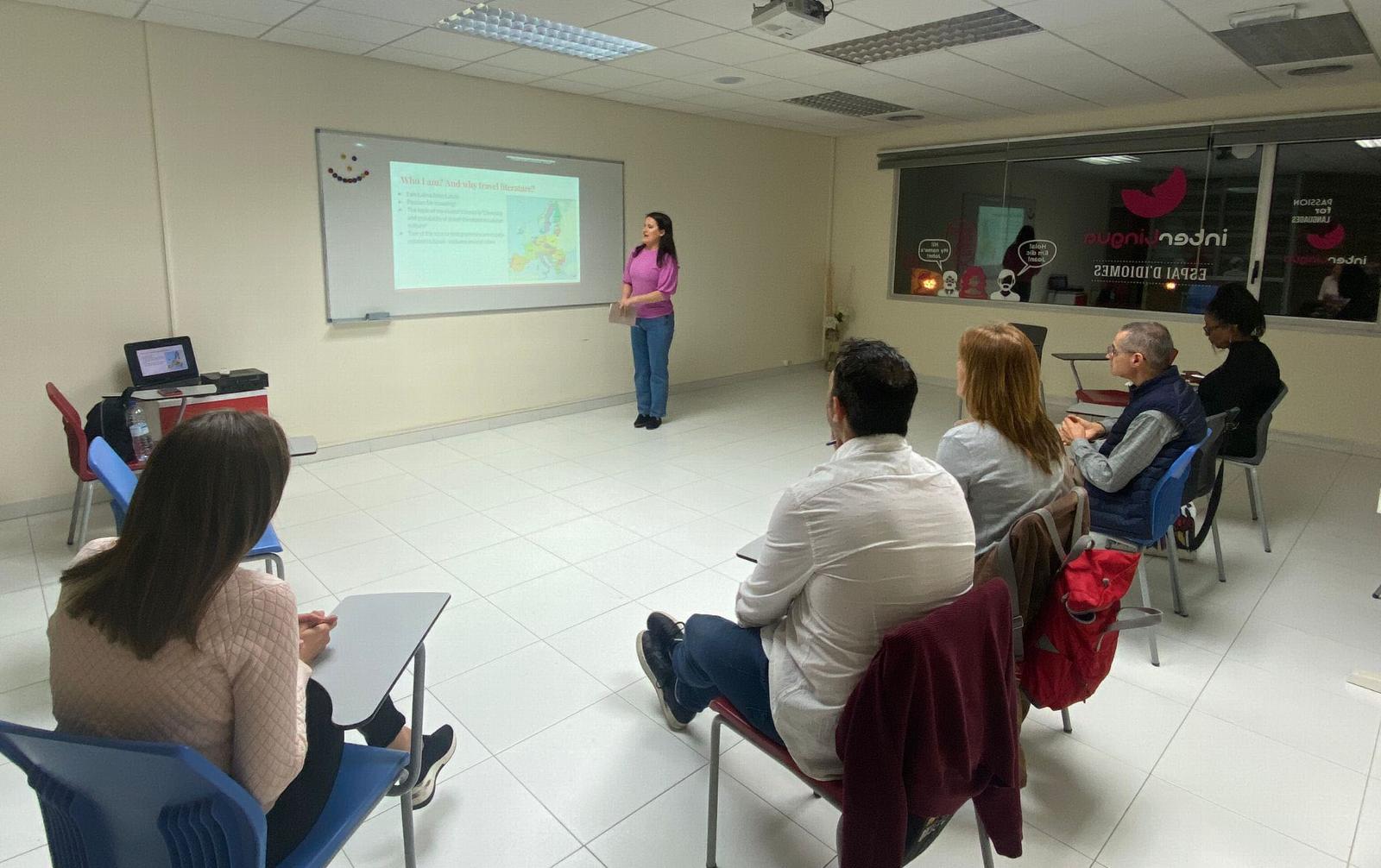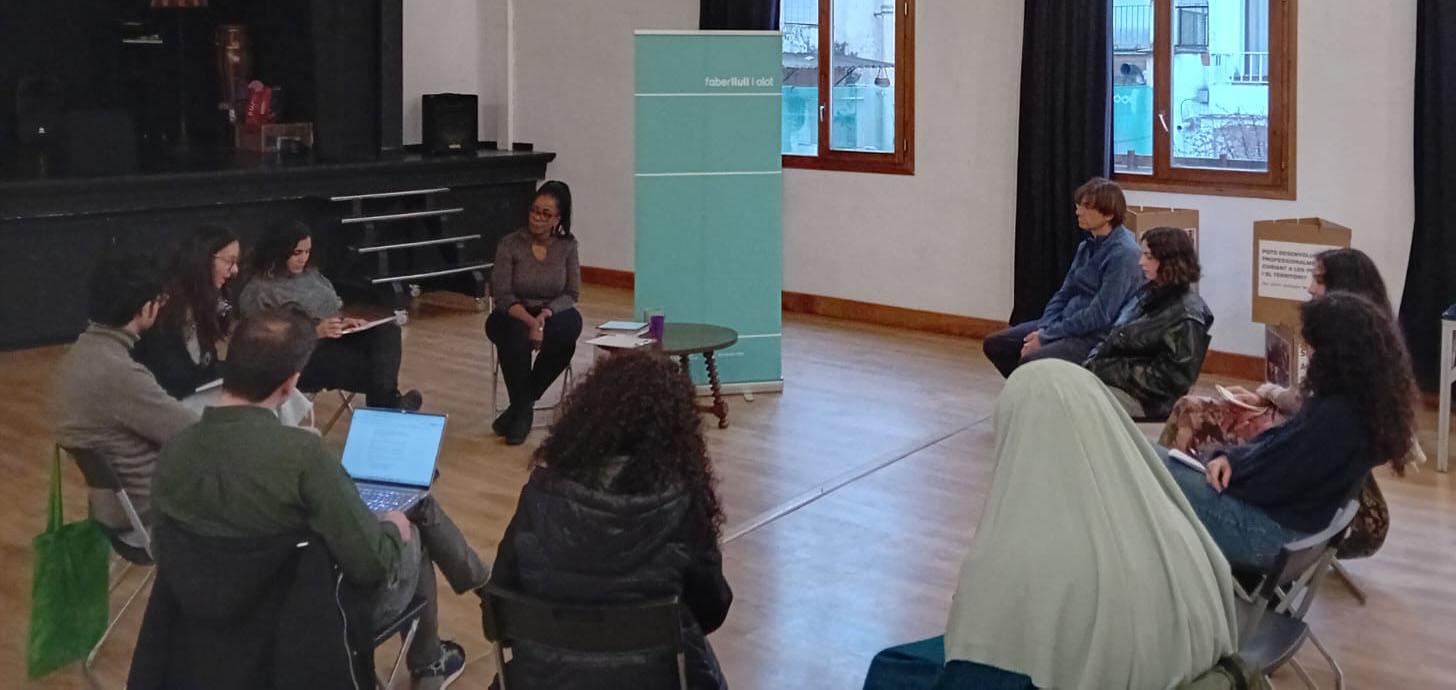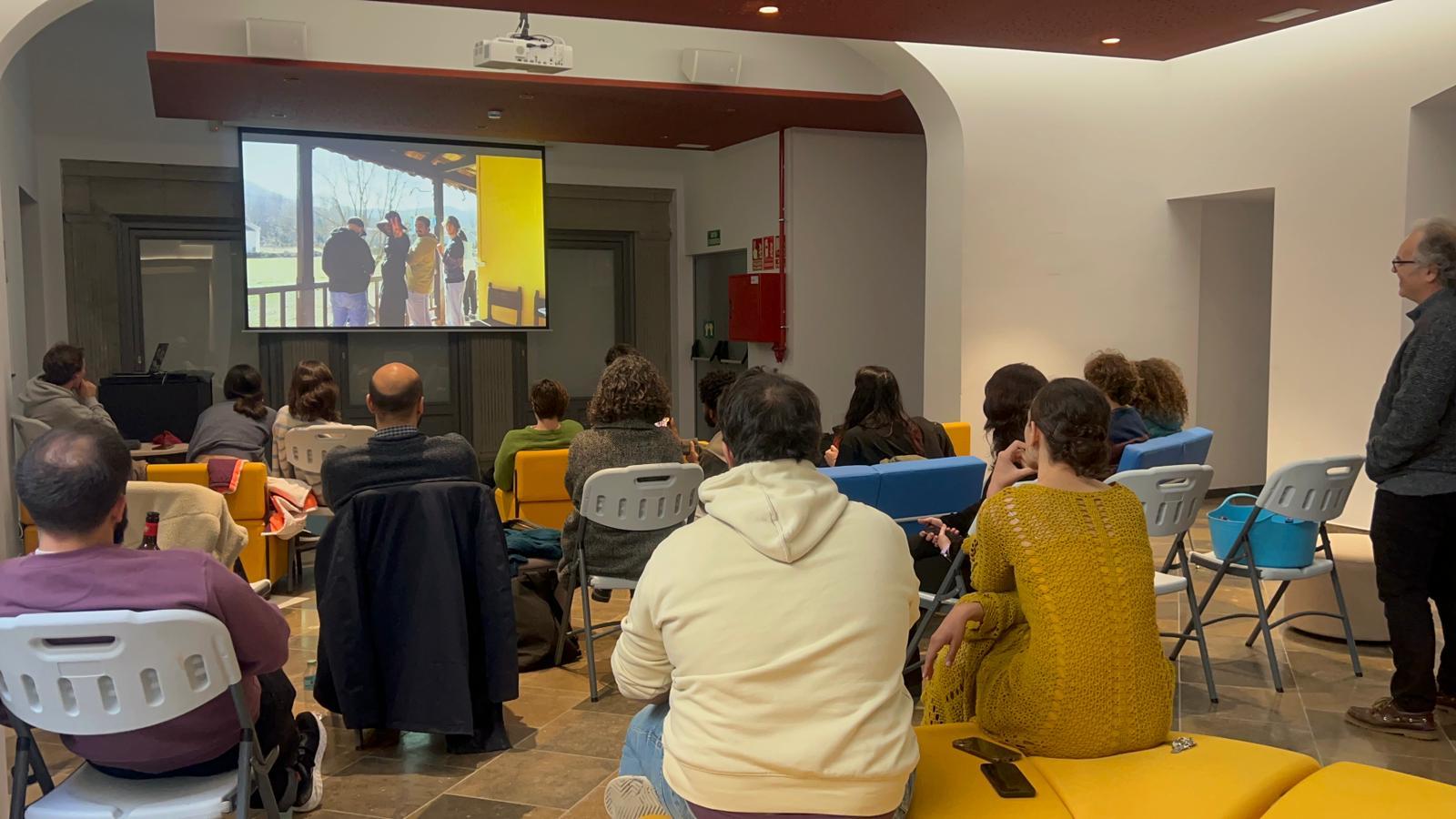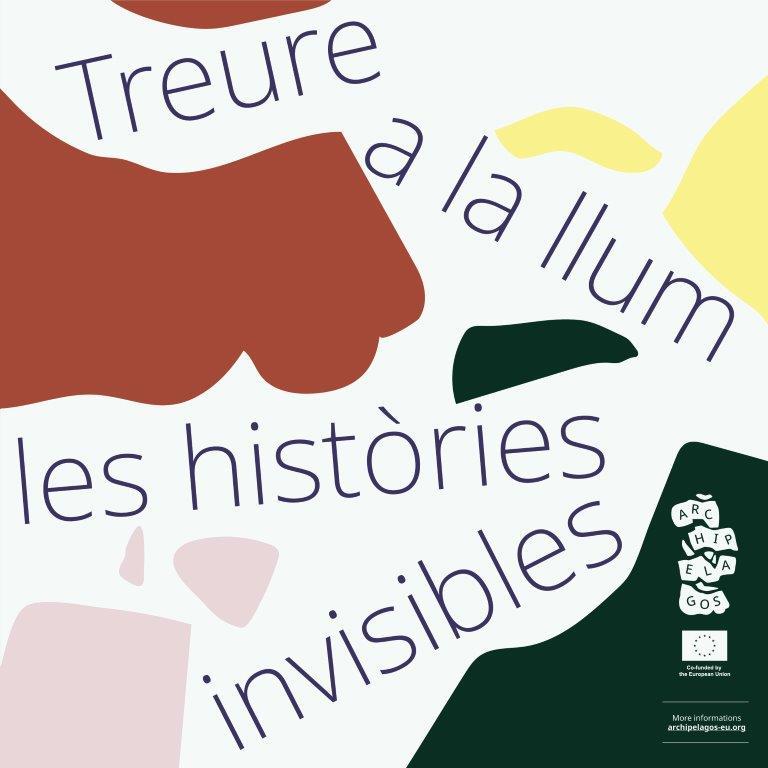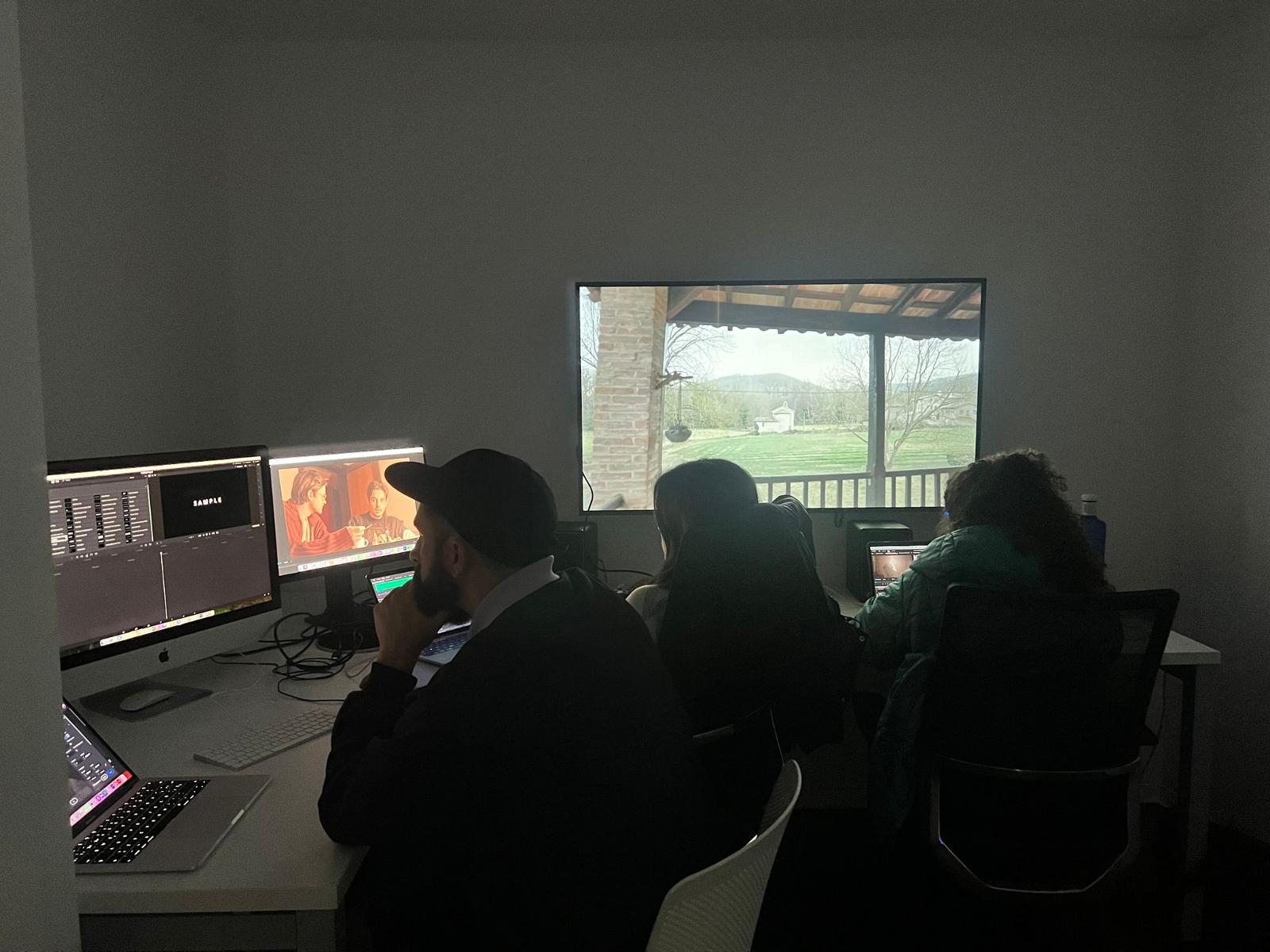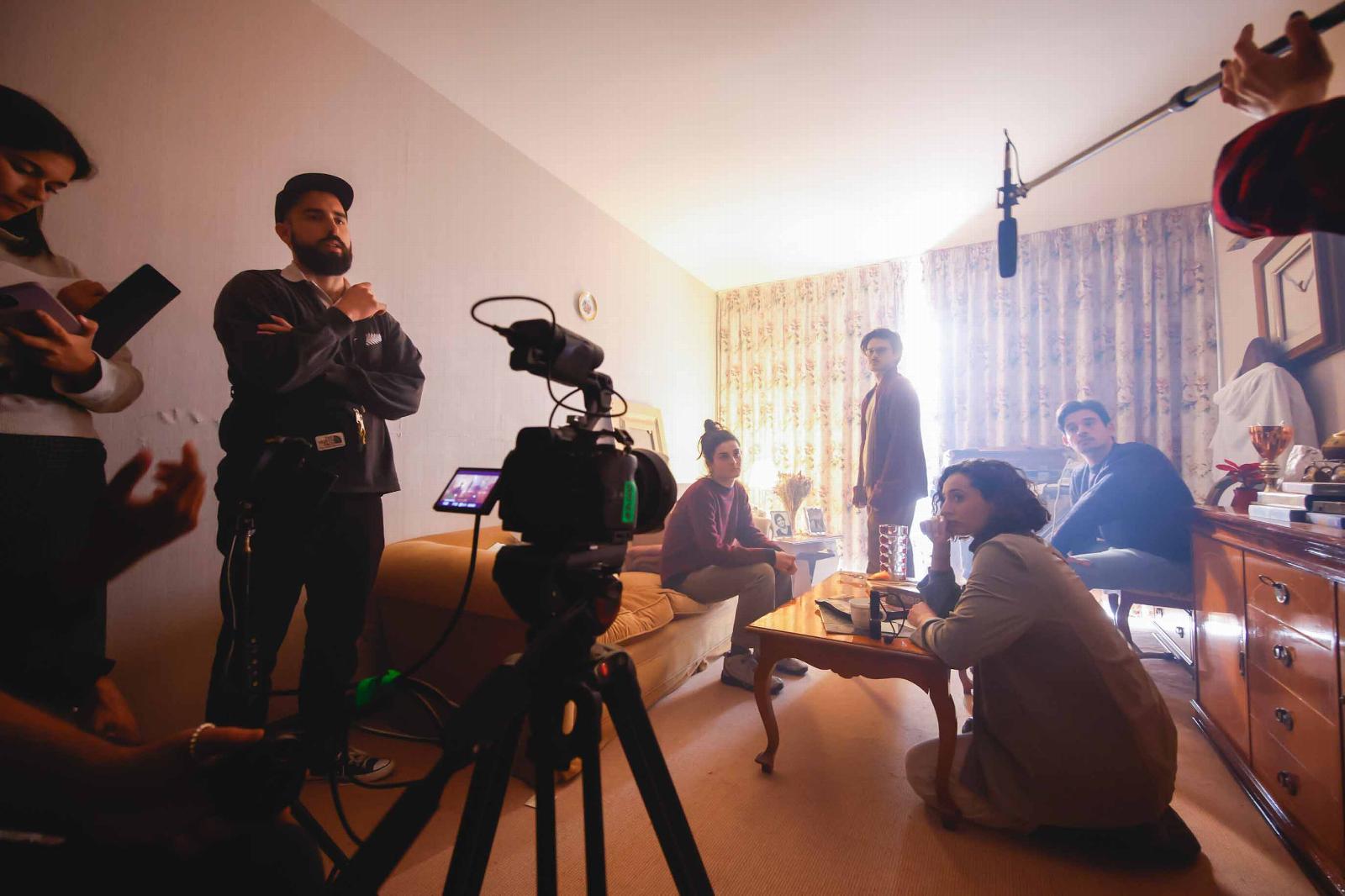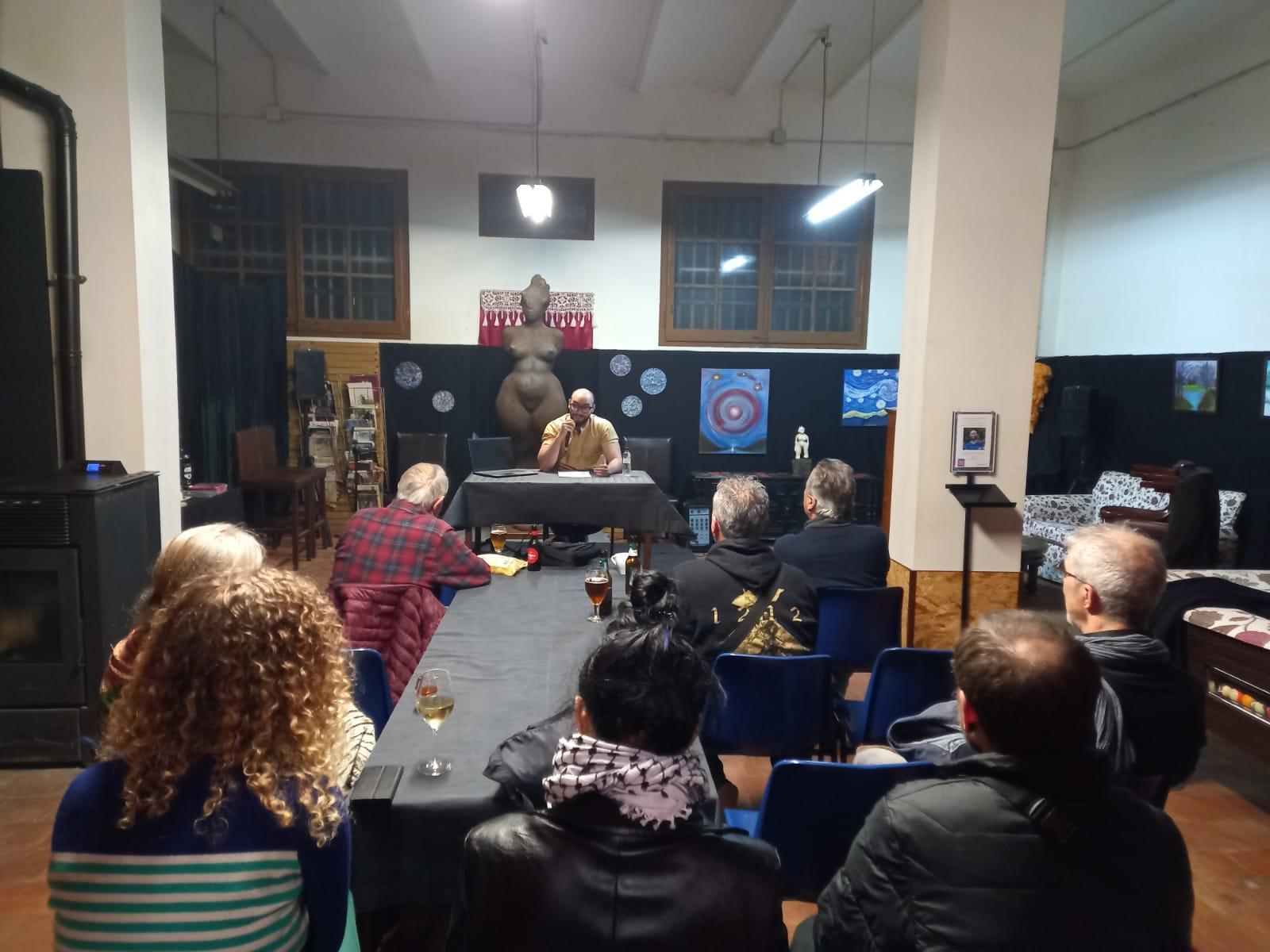Annukka Lahti at University of Girona
University of Girona | February 10, 2020
Monday, 10 February 2020 , Olot

Annukka Lahti at University of Girona
Annukka Lahti presented her post doc project on LGBTIQ+ separations for a group of researchers interested in LGBTIQ+ themes at the university of Girona: Mario Montero, Nuria Sadurni Balcells, Pilar Albertin and and José Antonio Langarita. She told about her project, in which she analyzes survey and interview data of Finnish QLGBTIA+ people who have experienced a recent relationship-break up. The main aim of her project is to explore how the changing social and legal positions of QLGBTIA+ people and their relationships entangle with the affective processes of break-ups. She approaches the becoming of the relationship break-ups through Deleuzo-Guattarian framework as assemblages, where multiple and complex elements come together. This framework highlights the ongoing and unpredictable processes of relationship break-ups. The research group in the University of Girona was very interested in this aspect of her project: how to apply new-materialist and affective approaches to empirical research on intimate relationships, since the discussion about new materialism and affect often is often very theoretical. Lahti told about her own example, which is forthcoming in her co-authored journal article with Marjo Kolehmainen (Journal of Sociology). She also presented for the group the Affective Inequalities research project, the main aim of which has been to develop methodological approaches as well as distinct methods, in order to narrow the gap between sophisticated debates on the significance of affect in indicating and renewing social hierarchies, and turning those ideas into empirical studies.
Lahti, Annukka & Marjo Kolehmainen: LBGTIQ+ break-ups in Finland. In: Kathryn Almack and Luke Gahan (eds) (forthcoming in 2020) Special issue on Experiences of and responses to disempowerment, violence and injustice within the relational lives of Lesbian, Gay, Bisexual, Transgender, and Queer (LGBTQ) people. Journal of Sociology

